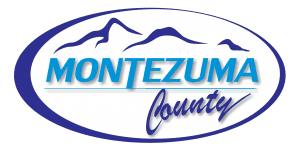CSU 4-H Youth Development
The 4-H Youth Development Program is a part of Colorado State University Extension, and Montezuma County. We are located at the County Annex Building, 103 N. Chestnut St. Cortez, CO 81321. Our office is open Monday through Thursday, from 8:30 am to 4:30 pm, closed for lunch between 11:30 am to 12:30 pm and are closed on Federal Holidays.
4-H provides learning experiences in which youth develop life skills such as communication, citizenship, decision-making, interpersonal relationships and community, and global awareness. Kids experience 4-H through in-school and after-school programs, school and community clubs and 4-H camps.
Traditional 4-H: 4-H programs are available for children ages 8-18, while there are 4-H Cloverbud programs for children ages 5-7. Kids complete hands-on projects where they receive guidance from adult mentors and are encouraged to take on proactive leadership roles. They learn these skills through projects.
4-H enrollment is open for the 2025-2026 4-H year!
*New families are encouraged to set up a meeting with Tierney, the 4-H Youth Development Specialist. You can set up an appointment at this link.
Deadline: Re-enrollment ends Dec. 1, 2025 at 11:59 pm
Enrollment for new members is opened until February 1st, but project, fair, or other deadlines still apply so early enrollment is highly encouraged.
Membership in 4-H is centered around membership in individual clubs—there are also many county-wide, state-wide, and nation-wide events and activities. 4-H is open to anyone who is at least eight years old and no older than eighteen on January 1st. However, there is a special Cloverbud 4-H program for children who are five to seven years old on January 1st.
Step 1—Investigate
Make sure to take a look at our list of 4-H clubs in Montezuma County. Scroll down to view information on individual clubs.
Step 2—Contact Us
Contact the club leader of the club you are interested in. They will tell you if they are accepting new members and when their next meeting is scheduled.
If you are a first year family who would like to join 4-H, have any questions about the 4-H program, or are not sure what club you would like to join, please call or email Tierney Wilson (t.wilson@colostate.edu 970-564-4155) at the county 4-H/Extension Office, who can answer your questions and put you in touch with any club leader you may wish to contact. You can also visit the Montezuma County 4-H/Extension Office (103 N Chestnut St., Cortez, CO 81321) in person and speak with us.
Step 3—Attend a Club Meeting
A club leader may ask you to attend a club meeting before joining. This is your chance to get a feel for the club.
Step 4 – Pick a Project
This may be the most exciting part of the process! Please look over our project list and decide which project best fits your needs. We encourage first year families to only do one project per member. We also recommend picking a project that has a project leader. If a member selects a project without a leader, they will be completing their project on their own with the help of a parent or family friend.
We recommend that first year families only pick one project per member.
Step 5—Enroll – Once you know which club you would like to join and what projects you are doing, you can go ahead and enroll yourself online using the 4-H Online enrollment system—download the 4-H Online instructions here. Parents should not enroll themselves in the system unless they’re also wanting to be 4-H volunteers. You will receive a confirmation email if you don’t receive the confirmation email your enrolment is not complete. Please call the office if this happens so we can help you finish your enrollment
4-H Fee: $30
- $15 – Colorado 4-H
- $1 – 4-H Member Insurance
- $14 – Montezuma County 4-H Programming
Additional 4-H Fees:
- Archery Project $25 – Individual Range Fee Or $35 – Family Range Fee
Cloverbud Fee:
- $15 – Colorado 4-H
- $5 – Camps & Activities
Late Fee:
- $20 – Per Month Starting Feb 1st. Until Paid
After you enroll, you will receive an invoice via email from “Montezuma Extension”. You can pay that invoice through the email via card or you can bring in/mail cash or checks to: Montezuma County 4-H, 103 N. Chestnut St., Cortez, CO 81321
For 2025-2026, the online payment option is only available until December 31st at 11:59 pm.
You will also be receiving an additional email from Tierney Wilson about your enrollment and specific requirements you will be asked to complete. Please make sure to read that email in its entirety.
If you ever have any questions, please feel free to give us a call or email:
Email: t.wilson@colostate.edu
Phone: (970) 564-4155
